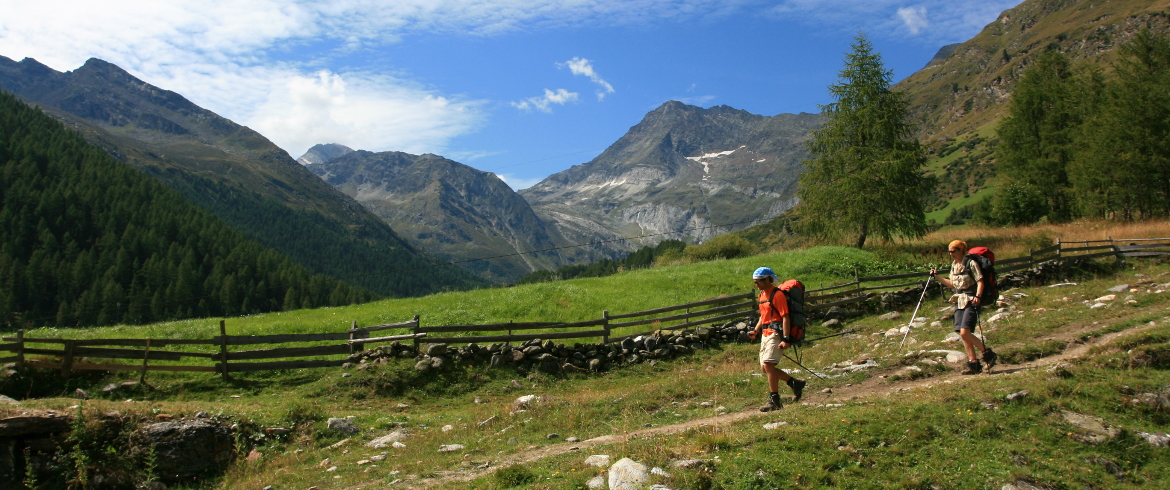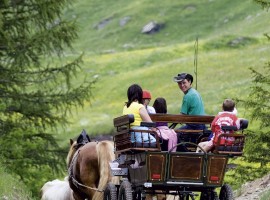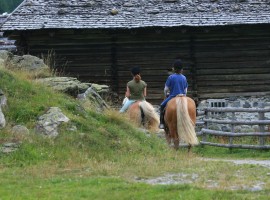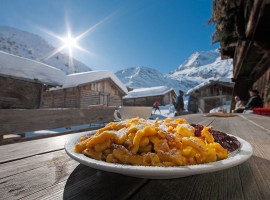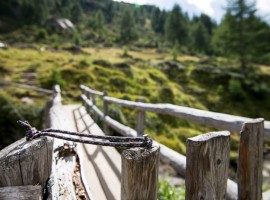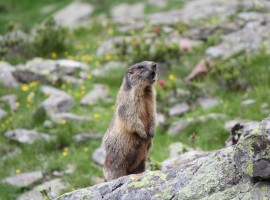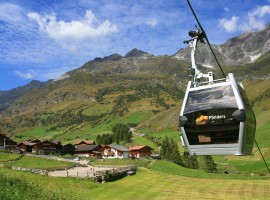Living in the Alps, we get used to fight, and also to work with struggling to find a balance with nature, to seek new ideas and solutions to survive here in the mountains. Konrad Pamer, young tourism councilor of the municipality of Moos in Passeier (South Tyrol), tell us about he alpine life in front of a plate of Knödel with nettles (collected a few meters from the tavern) flavored with local Malga cheeses.
The inhabitants of Moos in Passeier fifteen years ago fought for their energy independence and sustainable mobility. It was not easy, but this stubborn and combative community has achieved a major goals, a public hydroelectric power station in their village between the Alps of South Tyrol, 45 minutes from Merano. So, today the villages of Moos in Passeier exploit the water, abundant in their valley, to produce 100% clean energy, that they also sell to neighboring municipalities and other valleys.
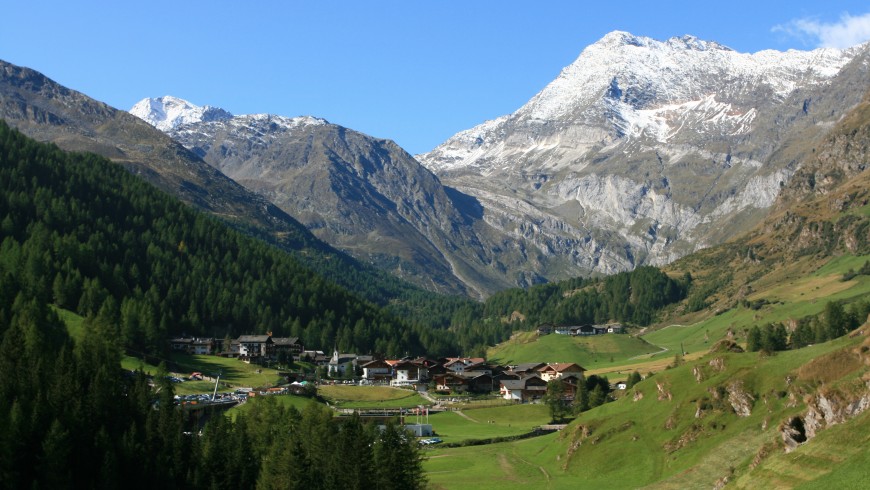
This is just the beginning of the history of Moos in Passeier, which twenty years ago was a poor and at risk depopulation (like many communities in the Alps) alpine village, and now, even though small (the municipality has only one mayor and four councilors), is one of the richest municipalities in South Tyrol. Thank to the sustainable choices that the town has made is now one of the Alpine Pearls (which we have already talked about here).
The conversation is animated, and in the meantime Alberich reaches us, a resident of Plan and horse lover. With his tanned face and the smile on the lips of those who really love their work, he tells us about the horse-drawn carriage tours.
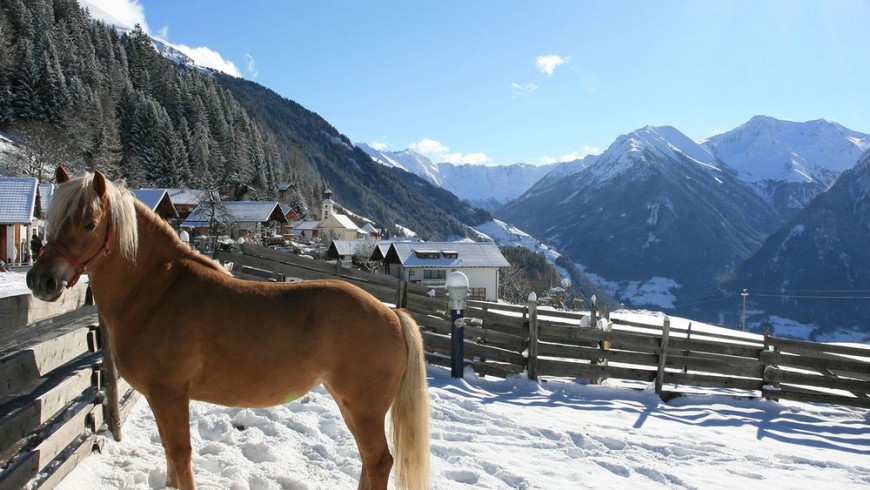
The small village of Plan, a hamlet of Moos in Passeier at 1,600 meters above sea level, once was only a handful of farms in the mountains. Today it has 220 inhabitants, 24 children, a school, several hotels and restaurants, a shop and some craft workshops, an efficient public transport service that connects the village to Moos in Passeier every half hour. Public transport is free for all students and the elderly, and very convenient for the people who pay based on the number of kilometers traveled (more km you make, the less you spend!).
Plan a few years ago made a courageous choice: focus on sustainable mobility and keep vehicles out of the village. So the streets and squares of Moos in Passeier are now populated with children playing ball and people walking. The cars, which pass rarely, are those of the residents and guests, who can overcome the barriers of access with a special code. In the small village of Plan there’s an authentic atmosphere. The old wooden farmhouses bring you back in time, people are friendly and often dressed in traditional clothes, the air is pure and in summer season the only background noise is that of cow bells strolling in the surrounding pastures.
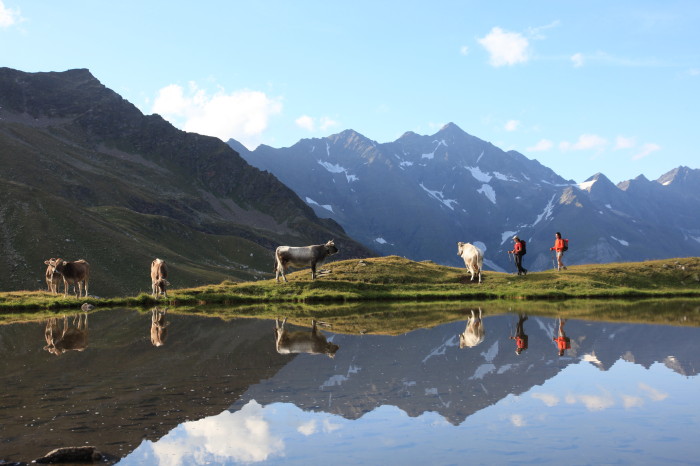
We are really curious to find out how this noise came to life, so we ask alderman Konrad Pamer, here’s what he answers:
When and how he joined the municipality of Moos in Passeier to Alpine Pearls?
Moos in Passeier has joined the network of Alpine Pearls from the start in 2010, but the idea of doing something in the field of sustainable mobility was even earlier. Since 2007 we have decided to undertake a pilot project to build the first car-free village of South Tyrol.
We chose Plan for this pilot project because it is t at the end of the valley, and also because it is a compact village that is near the ski slopes, which has more tourists than any other hamlets of the town.
We decided that car should have been kept out of the village and we even built a parking lot with a green roof to make cars invisible.
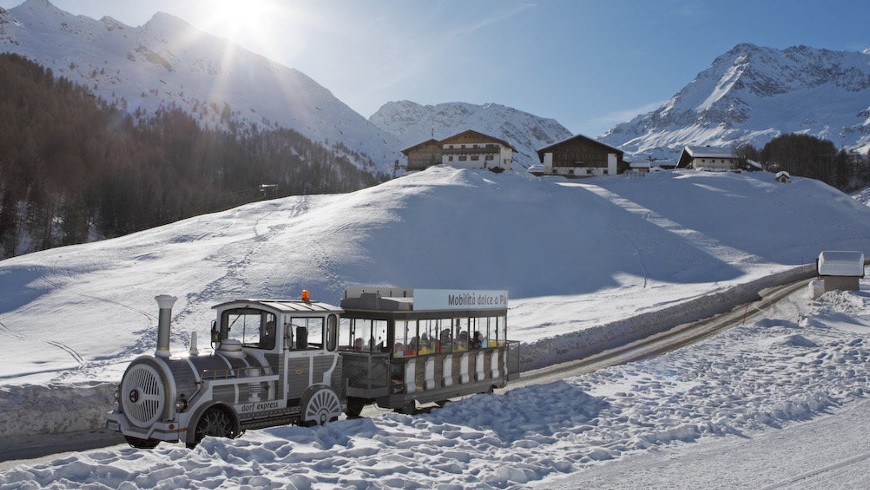
What is the town’s experience of sustainable tourism that you’d like to recommend to our readers?
Surely visiting Plan, getting there in citybus from Moos, and take the beautiful white train that takes you directly on the ski slopes. Or try a horse-drawn carriage tour from Plan to the ancient farms with stops to taste local cheeses.
- Horseriding in Pfertde
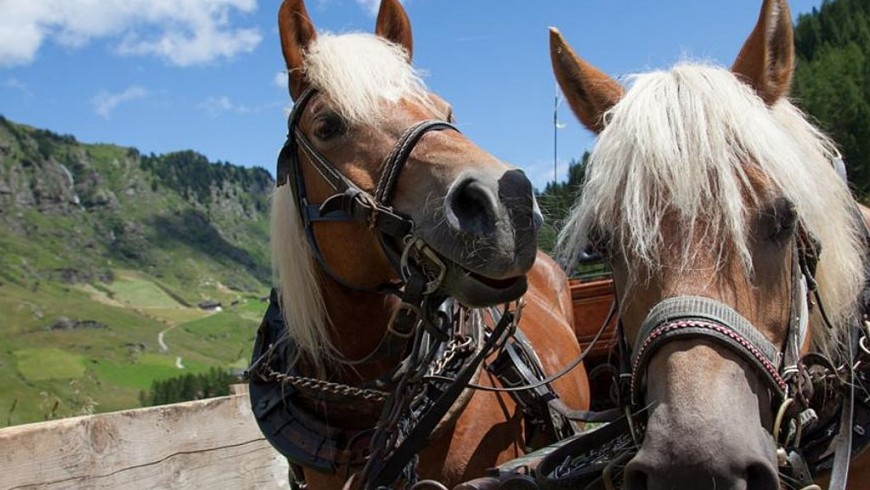
What is the most important goal you have achieved?
Being part of the Alpine Pearls has been for us an important piece that took us to the path of become a sustainable tourist destination.
As a municipality, the goal achieved that gave us most satisfaction is to be recognized as good administrators by our people, who appreciated the investments made in the direction of sustainability and the improvements of quality of life.
In recent years we have managed to achieve energy autarchy. Today we can therefore sell clean energy and reinvest the money for those who live in Moos in Passeier. In this way we can promote tourism and agriculture, increasing environmental awareness and strengthen the relationship between the inhabitants and the Tessa Group Natural Park.
- Tessa Group Natural Park,Moos in Passeier
- Tessa Group Natural Park,Moos in Passeier
- Grünbodenexpress,Moos in Passeier
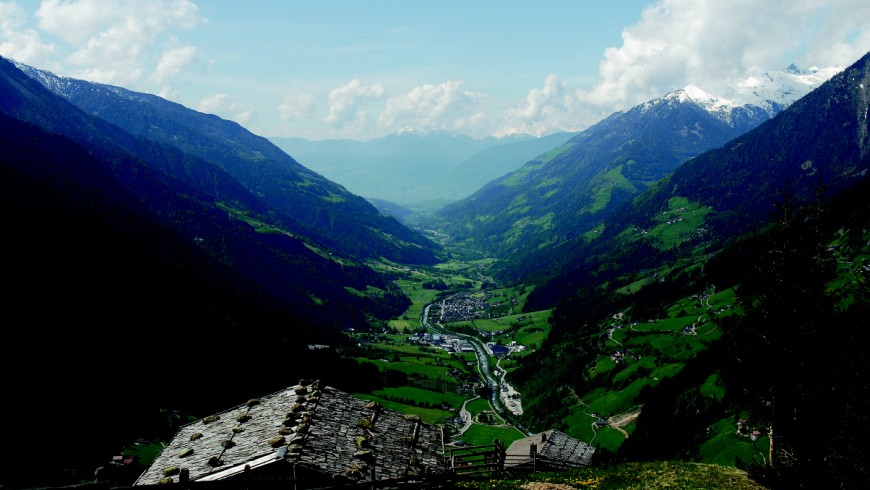
What makes the travel experience in Plan and in Moos in Passeier different from the others?
Plan is the only car-free village of South Tyrol. It offers the opportunity to forget about your car, to discover more than 400 km of trails and an exceptional alpine world with very few houses and lots of natural space.
What are the future goals?
We want to strengthen energy independence of the Municipality, further enhance the quality of our guests’ stay, explore the theme of silence , increase the well-being of the inhabitants and tourists.
What other Alpine Pearl is a reference for you?
Arosa in Switzerland, because the town is developing innovative ideas and they start to talk about sustainable mobility since the fifties.
What is most striking about talking to Konrad is his attention to the welfare and happiness of the inhabitants.
The walls of the tavern where we are are the same as 400 years ago. The same wood than once – Alberich informs us – blackened by the smoke of “Kuke” (the kitchen) that was used for smoking bacon. Here we eat strictly local, organic food, produced by livestock grazing on high altitude pastures. We taste a delicious homemade elderberry juice, and then a good grappa with hay, made by Alberich.
To survive you have to get new ideas, and here the community is able to do it in an eco-friendly way.
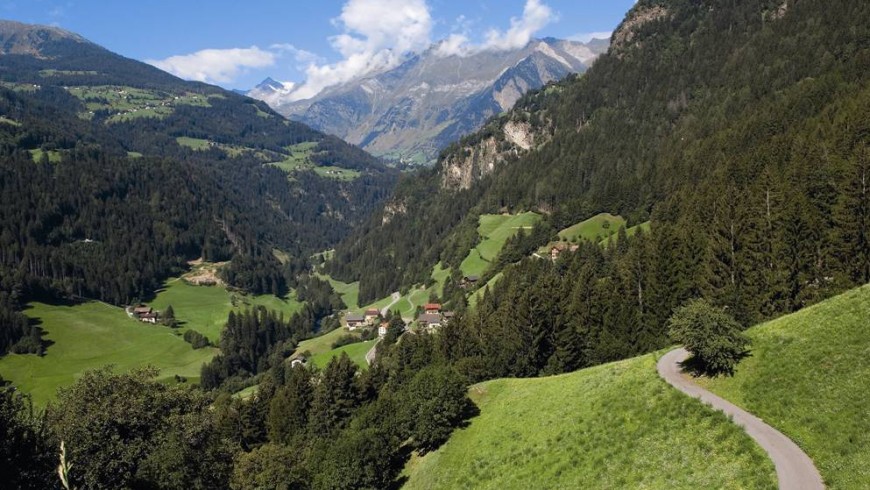
The next project? There will be a new bike route from Plan to Soelden, Austria, reveals Konrad. We look forward to go! And you?
